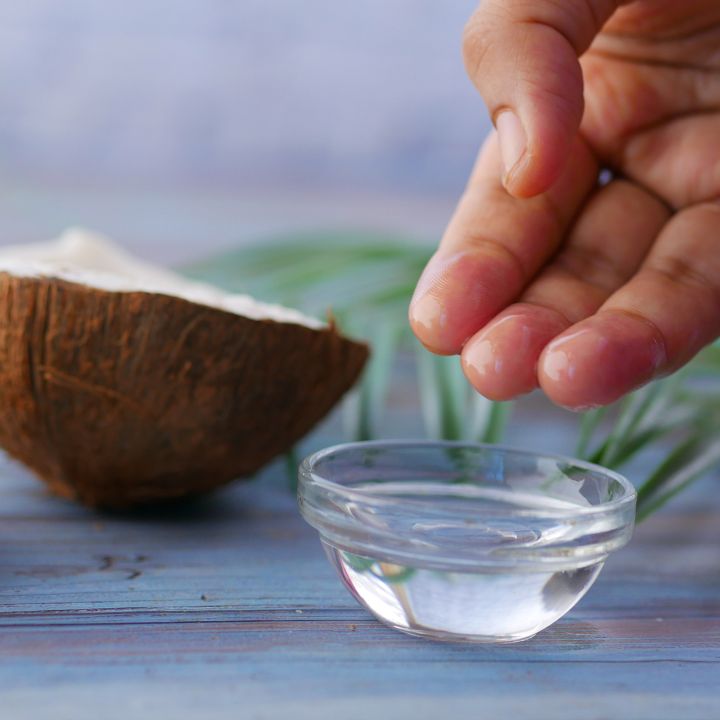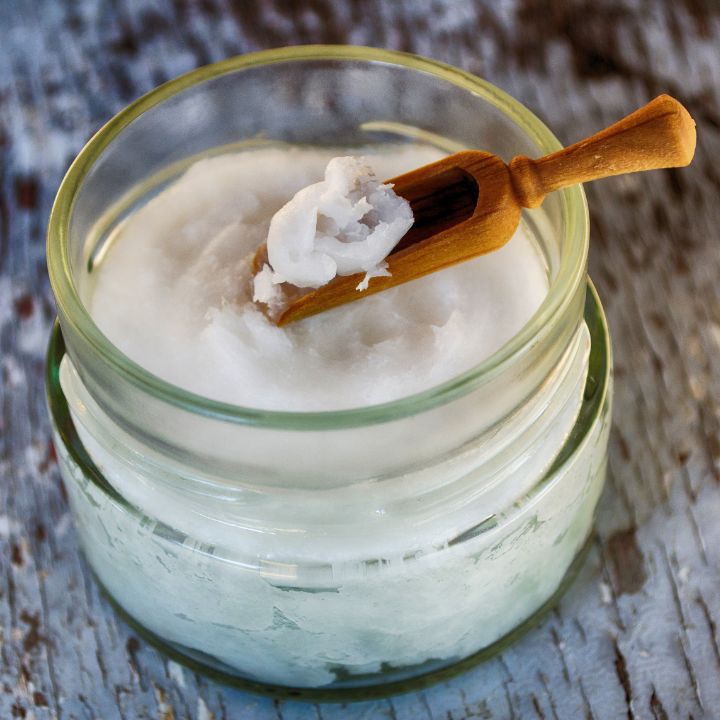Coconut oil has become a popular ingredient in both cooking and baking in recent years, largely due to its potential health benefits. Coconut oil is a plant-based oil that is derived from the meat of mature coconuts. It is rich in medium-chain triglycerides (MCTs), which are a type of healthy fat that is easier for the body to digest and use for energy.



Health Benefits
Brain Function & Boost Metabolism
There are several health benefits associated with using coconut oil in baking. One of the main benefits is that coconut oil is a rich source of MCTs, which have been shown to improve brain function and boost metabolism. MCTs are quickly metabolized by the body and can provide an immediate source of energy. In addition, the fatty acids in coconut oil have been linked to lower levels of LDL (bad) cholesterol and higher levels of HDL (good) cholesterol.
Anti-inflammatory
Coconut oil also has anti-inflammatory properties and may help to boost the immune system. It contains lauric acid, which has been shown to have antimicrobial and antifungal properties. This may help to protect against harmful bacteria and viruses and prevent infections. In addition, coconut oil contains antioxidants that may help to reduce oxidative stress and inflammation in the body.
Baking with Coconut Oil
High Smoke Point
When used in baking, coconut oil can provide several benefits.One of the main benefits is that it has a high smoke point, which means that it can be heated to high temperatures without breaking down or producing harmful compounds. This makes it a good option for frying and baking at high temperatures. Coconut oil can also add a rich, nutty flavor to baked goods, which can enhance their taste and texture.
Saturated Fat
However, there are some potential drawbacks to using coconut oil in baking. One of the main concerns is that it is high in saturated fat, which has been linked to an increased risk of heart disease. While the MCTs in coconut oil may have some health benefits, it is important to consume it in moderation and as part of a balanced diet. Additionally, coconut oil can be expensive and may not be suitable for all types of baked goods.
Multiple Types
When using coconut oil in baking, it is important to use the right type of oil and to measure it carefully. Virgin or extra-virgin coconut oil is the most natural and unprocessed form of coconut oil and is a good option for baking. Refined coconut oil may be more suitable for frying or high-temperature cooking, but it may not have the same health benefits as virgin coconut oil.
Liquid or Solid?
In addition, it is important to measure the coconut oil carefully to ensure that the recipe turns out properly. Coconut oil is solid at room temperature and can be melted by heating it gently in a microwave or on the stove. It should be measured in its melted form to ensure accuracy.
Coconut oil is a healthy and natural alternative to other types of cooking oils and can be used in baking to provide several health benefits. It is a rich source of MCTs, which can improve brain function and boost metabolism, and has anti-inflammatory and immune-boosting properties. When used in moderation and as part of a balanced diet, coconut oil can help to improve health and provide a rich, nutty flavor to baked goods. However, it is important to use the right type of oil and to measure it carefully to ensure that the recipe turns out properly. With the right use of coconut oil, you can create delicious and healthy baked goods that are good for you.
Substituting
When it comes to substituting coconut oil for butter in baking, the general rule is to use a 1:1 ratio. This means that if a recipe calls for 1 cup of butter, you can use 1 cup of coconut oil instead.
Melt First
However, there are a few things to keep in mind when using coconut oil as a substitute for butter in baking. First, coconut oil is solid at room temperature, so you’ll need to melt it before using it in a recipe that calls for melted butter. Second, coconut oil has a distinct flavor and aroma, so it may change the taste of your baked goods. If you don’t want your baked goods to taste like coconut, you may want to use a refined coconut oil instead of an unrefined one.
Melts at Lower Temps
It’s also worth noting that butter and coconut oil have slightly different properties when it comes to baking. Butter has a lower melting point than coconut oil, which means it will start to melt at a lower temperature. This can affect the texture of your baked goods, especially if they need to hold their shape (like cookies). Coconut oil, on the other hand, has a higher melting point, so it can help your baked goods hold their shape better. However, this can also make them denser and chewier.

